What do Leading Transportation Experts Say About AV Travel in 2050?
We asked 27 leading transportation experts to predict a set of specific outcomes we’re likely to see in the world of autonomous vehicle travel in 2050. The panel included a broad range of transportation experts from academic institutions, public agencies, and technology firms who have recently published or presented their research on AV topics, as well as select experts from within Fehr & Peers. The panel was structured as a Delphi panel, a leading forecasting technique that leverages the expertise of individuals to produce a highly-accurate group forecast. The Delphi panel process was conducted in early 2018. Participants were asked questions ranging from expected AV adoption dates to anticipated travel behavior outcomes.
Key Findings
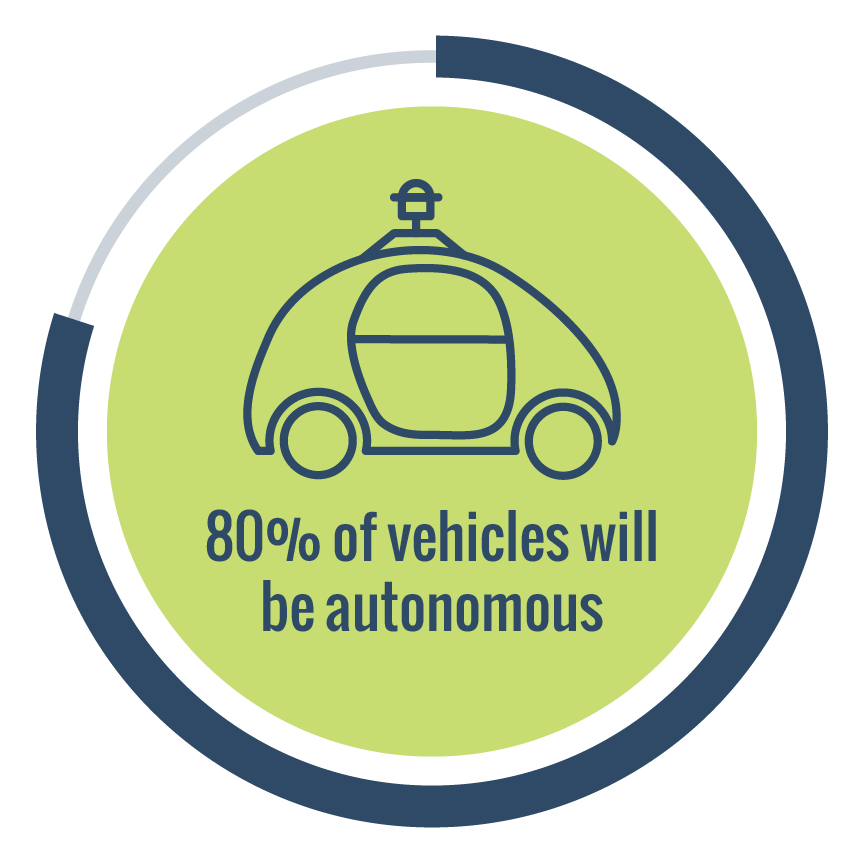
This is a higher adoption rate than other studies have predicted, which average about a 60% fleet mix by 2050.
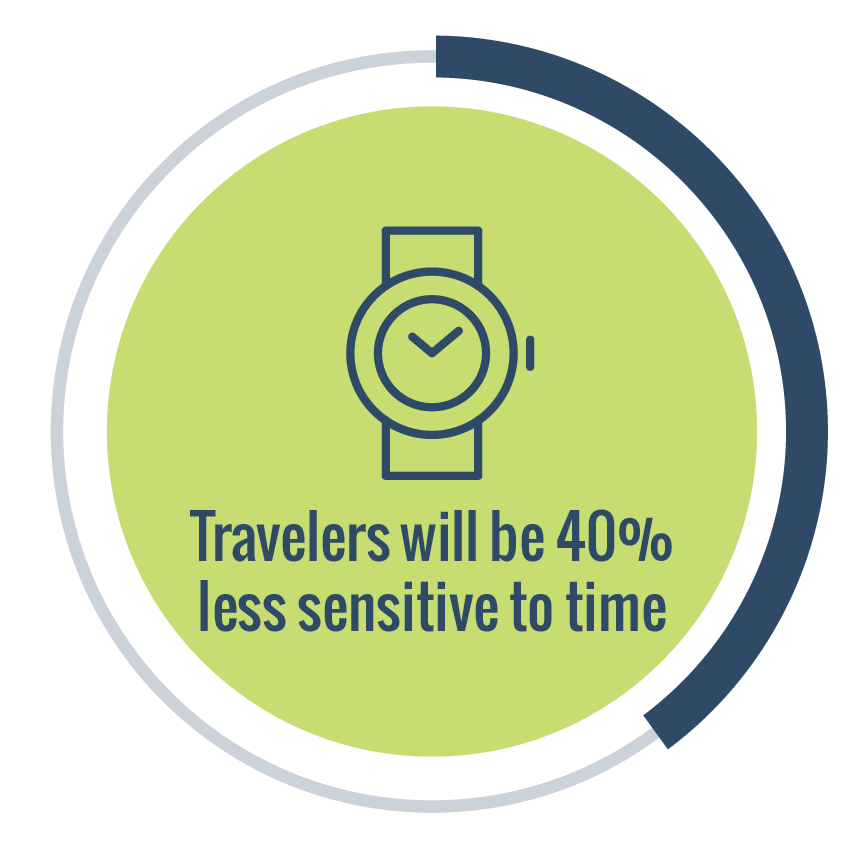
AV passengers will feel that the value of time spent traveling in an AV is 40% more valuable than the time spent driving under today’s conditions, which could increase the length of many trips.
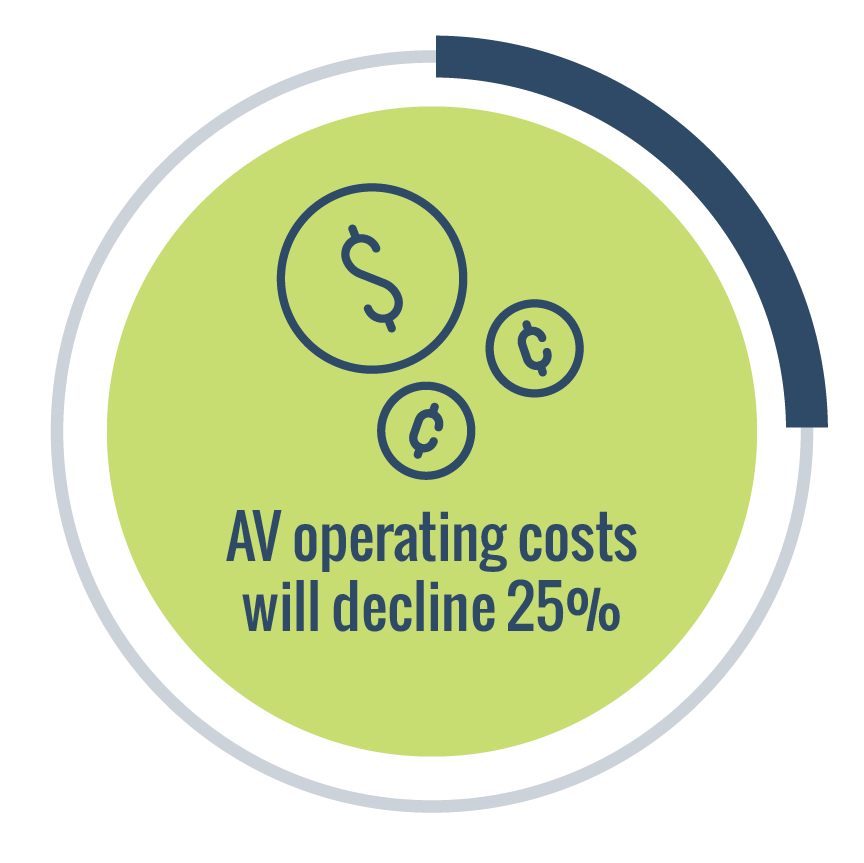
Compared to non-autonomous vehicles. This could lead to more substantial trips being taken in AVs.
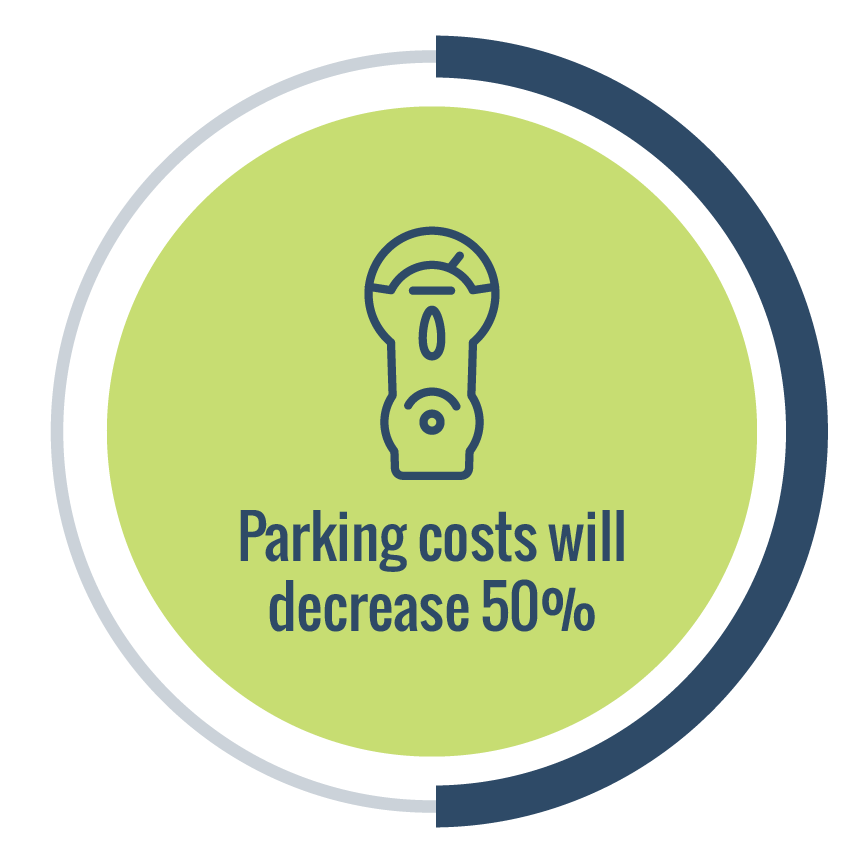
Parking costs will decrease 50% because the demand to park vehicles will go down.
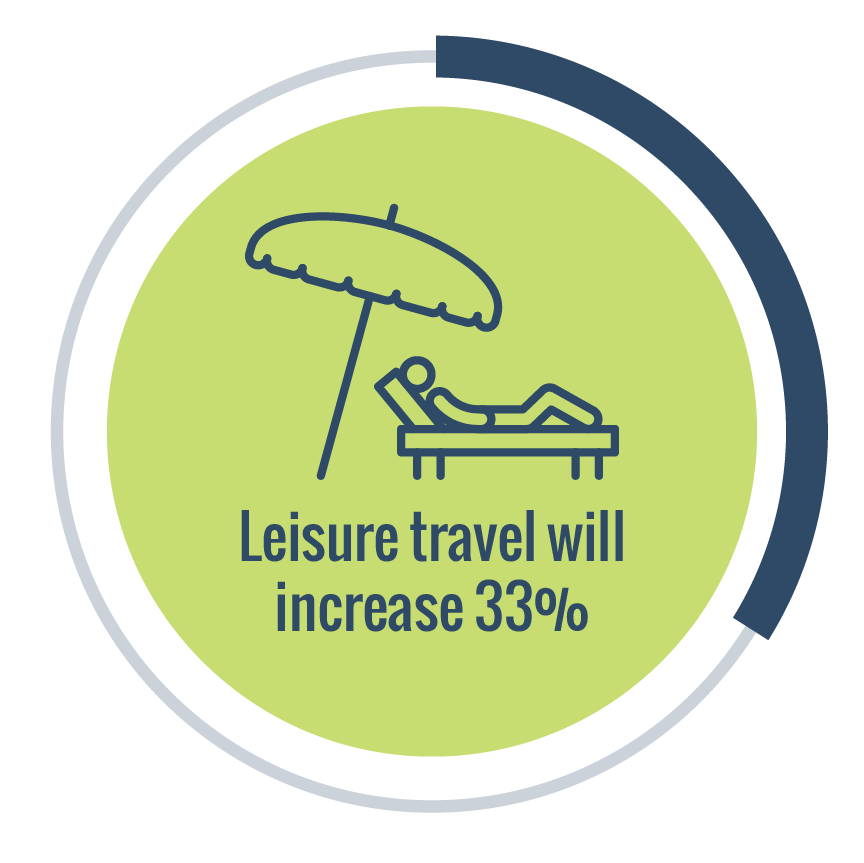
Certain types of trips will be more attractive to take in an AV.
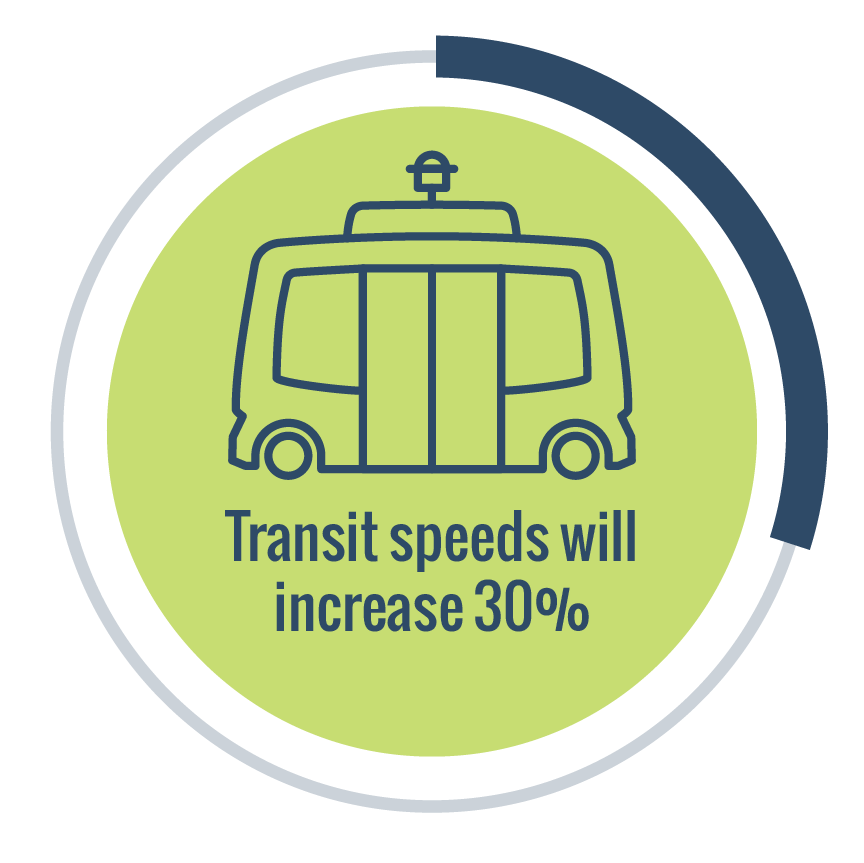
In an AV future, the time required for a transit trip will drop about 30% due to more efficient and more dispersed transit services.
Takeaways
These findings offer several important takeaways that our clients can be considering as they plan for an autonomous future.
Scenario planning approaches are essential.
Not all panel members agreed on every topic area – in fact there were wide ranges of opinions on expected parking costs, auto operating costs and transit characteristics. These results suggest that forecasting the future effects of AVs should consider a scenario-planning approach, allowing decision makers to see the range of outcomes likely to occur under a range of possible market forces and forms of potential cooperation between the public and private sectors.
Policy interventions are also important.
While not all panel members agreed, many suggested that policy interventions can effectively influence the trajectory of AV service characteristics in the future.
AVs will have wide ranging effects on vehicle travel demand.
This will include reducing vehicle costs and increasing the demand for certain types of trips. As a result, it is not too early to begin proactively developing counter-strategies to address potential increases in vehicle trip making and VMT.
We’re tackling some of the biggest and most challenging questions about how technology is disrupting the transportation industry. If you’d like to discuss more, we would love to talk.

